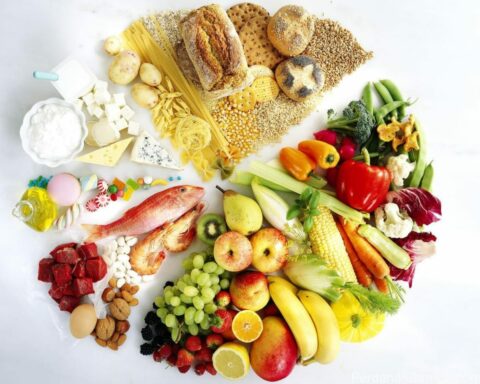It comes with little surprise that some diets may restrict the eating of vegetables. That is what the Plant Paradox Diet is all about – restricting the intake of vegetables rich in lectins.
Lectin is a compound inhibiting the absorption of some nutrients and is found in most plants. The creators of the Plant Paradox Diet associate lectin with inflammation, unhealthy weight gain, and chronic conditions. Therefore, it appears that following this diet religiously may come with some health benefits. However, many people have criticized this diet making it hard to whether your body may or may not benefit from the Plant Paradox diet. This article is designed to put things straight and help you know everything you ever wanted to know about the Plant Paradox Diet.
What is the Plant Paradox Diet?
The Plant Paradox Diet was developed by a surgeon, Steven Gundry, in his book “The Plant Paradox – The Hidden Dangers in Healthy Foods that Cause Disease and Weight Gain.” Dr. Gundry based his claim on the fact that many edible plants contain lectins, antinutrients that are associated with weight gain and chronic diseases. However, only a little evidence exists to support the claims that plants rich in lectin can lead to these problems.
What Are Lectins?
Lectins are a type of protein found abundantly in many plant foods, especially in grains, tomatoes, legumes, and eggplants. Dr. Gundry claims that for survival, plants produce toxic lectins. Therefore, when eaten, they may cause intestinal problems, inflammation, and weight gain. While lectins may seem toxic and should be avoided, according to Dr. Gundry, a plant containing them is highly nutritious, providing antioxidants, vitamins and minerals, and other beneficial nutrients. A good example is that of raw, nutritious kidney beans. They naturally contain a toxic lectin called phytohaemagglutinin. However, when cooked properly, this lectin is destroyed. Additionally, Gundry says that grains containing gluten should be avoided since they also contain lectins. Nevertheless, gluten is safe for many apart from those with gluten intolerance or celiac disease.
Starting and Following the Plant Paradox Diet
Beginning and following the Plant Paradox Diet is simple – you only need to avoid the foods containing lectin. It primarily involves two specialized programs, the low-carb and high-fat keto program and a 3-day detoxification program. The low-carb, high-fat keto program is specially made for those with cancer, while those who are just starting on the diet use the 3-day detox program. The 3-day detox program may be a bit challenging at first. This is because you will have to strictly rely on a lectin-free diet exclusively for three days, lightly exercise regularly, and drink up to 8 cups of water decaffeinated coffee or tea. You will also need to avoid seeds, grains, sugar, and eggs, which will help prepare your body for the long-term Plant Paradox Diet. It is worth noting that the low carb, the high fat program is not a replacement for cancer treatment.
Foods to Eat and Avoid On the Plant Paradox Diet
The Plant Paradox Diet restricts the intake of all plant foods containing lectins. However, the foods it emphasizes are a good source of protein and fat.
Foods to Eat
If you are considering starting on the Plant Paradox Diet, it will be best to eat the following foods:
Fats &Oils – cook with coconut oil, grass-fed butter, rice bran oil, sesame oil, olive oil, macadamia oil, and avocado oil.
Sweeteners – increase the taste of your foods with xylitol, erythritol, stevia, monk fruit, and inulin.
Nuts and seeds – flaxseeds, hemp seeds, sesame seeds, pine nuts, walnuts, macadamia, pistachios, chestnuts, hazelnuts, pecans, Brazil nuts, and psyllium.
Flours – almond flour, coconut flour, and hazelnut flour.
Dairy & dairy products – cheese, milk, butter, organic sour cream, goat’s milk, Brie, and organic heavy cream.
Fruits – berries, coconut, etc.
Fish & seafood – shrimp, oysters, calamari, lobster, crab, white fish, salmon, mussels, scallops, canned tuna, anchovies, and sardines.
Vegetables – beets, okra, broccoli, Brussels sprouts, carrots, artichoke, romaine, mushrooms, garlic, mesclun, celery, collard greens, asparagus, spinach, arugula, kale, Swiss chard, cabbage, cauliflower, and Bok choy.
Poultry & meat – pork elk, bison, venison, lamb, beef, chicken, duck, turkey, goose, quail, and ostrich.
Foods To Avoid
If you want to successfully follow the Plant Paradox Diet, you will need to avoid some foods you dearly love. Foods to be avoided in this diet also include pro-inflammatory foods that may increase your risk of chronic inflammation.
Refined sugars and starches – bread, sugar, agave, rice, tortillas, potato, potato chips, pastries, crackers, cookies, cereals, splendid, pasta, maltodextrin, Sweet n Low, whole grains, oats, wheat, quinoa, barley, popcorn, and corn.
Vegetables – cucumbers, tomatoes, legumes, peas, tofu, edamame, cucumbers, zucchini, soy, chickpeas, green bananas, sugar snap peas, bell peppers, etc. and eggplant.
Fats & oils – grapeseed oil, corn oil, sunflower oil, safflower oil, peanut, soybean and soy oil, and canola oil.
Fruits – nearly all fruits are to be avoided except berries.
Grains – bulgur, quinoa, whole grains, rye, and oats. You will also need to avoid all sprouted grains.
Health Benefits of the Plant Paradox Diet
May Promote Healthy Weight Loss
The Plant Paradox Diet eliminates most added sugars and processed foods. This lowers your calorie intake, thus lowering your weight. The diet also promotes the eating of healthy fats and high-quality protein while excluding starchy foods. This increases your feelings of fullness, making it easier to adhere to a low-calorie diet.
May improve Digestive Health
It is a good alternative for those with digestive problems or sensitive to lectin. Lectin sensitivity is more common with tomatoes, potatoes, and eggplants. The diet relieves constipation and diarrhea.
May Increase Insulin Sensitivity
The hormone insulin is responsible for the regulation of blood sugar. By eliminating sugary and starchy foods, the diet may improve insulin sensitivity.
May Reduce the Risk of Autoimmune Diseases
This diet and the autoimmune protocol (AIP) may prevent many inflammatory conditions like Hashimoto’s disease, celiac disease, and inflammatory bowel disease.
Conclusion
The Plant Paradox Diet was developed by Dr. Gundry, a surgeon, and physician. The diet involves the strict elimination of plant foods containing lectins and pro-inflammatory foods. Depending on the program you will take to follow this diet, it will still benefit your health.
- How to Manage or Improve Anxiety - September 21, 2023
- The birth of a company - July 29, 2023
- Online Fitness & Nutrition/Personal Training by Rob Powell - July 7, 2023









